Alliance for the Public*: Fascistic, Amorphous Right-wing Politics
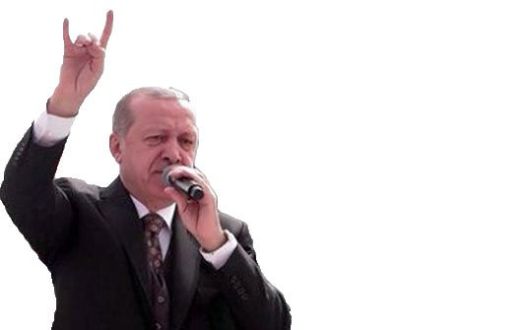
Click to read the article in Turkish
The move on the part of Devlet Bahçeli toward the AKP’s (Justice and Development Party) sphere of influence, which started by the termination of Peace Process accelerated after July 15, 2016.
Bahçeli did not stop there. He called for referendum In October 2016, when the debates on presidential system were slowing down he called for referendum by announcing the need to match what is de facto with de jure. He extended unconditional support to Recep Tayyip Erdoğan.
Then he was photographed more than once with Erdoğan on one side and Binali Yıldırım, on the other side.
Then he continued to support the AKP and Erdoğan during Fırat Shield and Afrin military operations. The MHP (Nationalist Action Party) turned out to be a political party taking all the same stance with AKP in Parliamentary commissions and General Assembly votings.
And this cooperation reached to the formation of Alliance for the Public for the Presidential and general elections in 2018.
MHP’s leaning towards the AKP, the rise of the intra-party opposition in the aftermath of November 1, 2015 general elections and the call for extraordinary general congress; Bahçeli’s negative response to this call and the emergence of İYİ Parti (Good Party) from within the MHP, under the leadership of Meral Akşener have all been effective in this process.
Alliance for the Public does not merely consist of the AKP and the MHP. There is a third party: BBP (Grand Unity Party). Does the fact that these three political parties stand side by side invite a reconsideration of the Turkish-Islamic Synthesis? Does Alliance for the Public signify the melting of Turkism that originate from the MHP’s, and thus Türkeş’s line. Or can we say that just the opposite is taking place - that this alliance is turning the AKP into Turkism? What kind of a Turkey might emerge in case this alliance gains victory in June 24 elections. How would such a victory affect the opposition. Would Turkish-Islamic synthesis have a place in setting?
We asked these questions to Dr. Simten Coşar. Coşar argues that the “Turkish-Islamıc Synthesis has lost its hegemonic role”; she defines the existing governmental structure in terms of an amorphous rightist politics.
 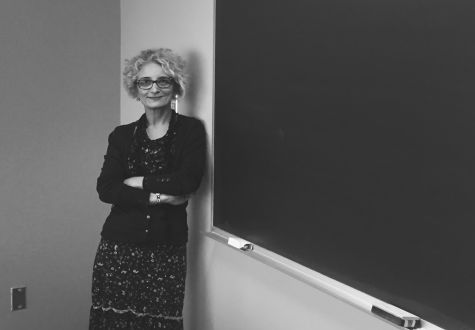 |
Prof. Dr. Simten Coşar kimdir?Had her undergraduate degree from Boğaziçi University (Political Science and International Relations). She continued her graduate and Ph.D studies at Bilkent University (Political Science and Public Administration. She teaches and researches on political thought (in Turkey), political parties in Turkey, women in history of political though, and on feminist theory. Her articles are published in Journal of Political Ideologies, Contemporary Politics, Feminist Review, Journal of Third World Studies, South European Society and Politics and Monthly Review. She retired from Hacettepe University in July 2017. |
Let’s start with recent past. After Özal, there used to be analysis of “Turkish-Islamic synthesis" analizleri yapılırdı. Now we see the Alliance for the Public, formed by the AKP, MHP, and BBP. How would you read this alliance - as the synthesis between Political Islam and Turkish nationalism, as an interaction between the two, or as one absorbing the other?
Turkish-Islamic Synthesis fits most to the MHP in this trio. This is so historically; it is such in terms of its discursive and ideological implications. The Synthesis was first formulated in the early 1970s by the Hearth of Intellectuals, with organic ties to the MHP.
After the 1980 coup d’état the Synthesis was turned into a dominant form of nationalism by Evren and military regime and thus by the founders of the future civilian regime. The three years long military regime offered the grounds for its rapid expansion.
BBP and AKP has continuously denied Turkish-Islamic Synthesis. The unity coexistence of Islam and Turkishness on which the BBP relied is called Turkish-Islamic Ideal. AKP in its early years, used to be keen on emphasizing that it refrained from referring to Islamist politics as well as Islam as a governing technique. The party has put forth Muslimhood on individual level.
However, the way the AKP’s prominent members, its leaders, and its leader define and emphasize Turkishness and their measures regarding rights-based issues per different identities bear the trace of Turkish-Islamic synthesis, though AKP’s politics is not merely about the pattern offered by the synthesis.
I would also argue that the BBP also operates within the borders drawn by the Turkish-Islamic Synthesis, regardless of rejection of the synthesizing mentality. In other words, it is possible to sat that the MHP, AKP and BBP has until very recently represented the different possibilities and/or promises of the identities, associated with Muslimhood and Turkishness in a political sphere where Turkish-Islamic synthesis assumed a decisive role, shaped its political codes, provided the style and main discursive tools of political competition.
So can we say that Turkish-Islamic synthesis is still valid today? But perhaps, it is not as extensive as it was in the 1980s and 1990s.
Actually, there are arguments taking February 28 as the date of the invalidation of Turkish-Islamic Synthesis. I’d better note this here.
My preference to emphasize that Turkish-Islamic Synthesis has framed the rightist politics in Turkey until very recently relates to a very simple fact: in the post-1980 period and until 2013 the Synthesis - as the decisive nationalist form for the reconstruction of politics in post-1980 peripd - has been the modus operandi for those political parties demanding the state (power) and the political center - until 2013.
What happened in 2013?
I take 2013 as the symbolic turning point in Turkey’s post-1980 politics; here my guide is the Gezi Parkı Resistance. Starting with the Gezi Parkı Resistance nothing stayed the same as constructed through the 1980 coup d’etat and the following military regime - social opposition, government, and the formulas and spheres of institutional politics all were pushed to an inevitable flux.
Opposition at the political party level is an exception in this respect. In sum, centrist politics that was started during the military interim regime (1980-1983), operated by the dominance of center-right (along Motherland Party-True Path Party-the AKP line) lost its defining role. In parallel, Turkish-Islamic Synthesis lost its hegemonic function.
Both were replaced by fascistic, amorphous rightist politics. Certainly, it is resisted by social opposition that is at the same time denied and repressed violently. Here, I shall note: we can depict fear as the modus operandi of the political sphere.
Neoliberal flexibility
Let me state the implications of Turkish-Islamic Synthesis acting as the modus operandi. By this I mean that the notion of Islam as the ‘sociological reality’ of the Turkish people and thus all the peoples living in Turkey, the conviction that Islam is the distinctive and indispensable ingredient of Turkish national identity, that the normalization of the authoritarian features of the state and that all these turn into unquestioned rhetorical constituents of mainstream politics in the country.
As such, Turkish-Islamic Synthesis return to the MHP’s monopoly. Nowadays the maximum flexibility in the MHP’s stance, its compliance to the AKP push one to add a new aspect to the account on Turkish-Islamic Synthesis: Flexibility - one that can also be associated with neoliberal demands to flexibility. Nationalist rhetoric offers space for such flexibility. In today’s extraordinary political conditions, this flexibility works with relative ease.
BBP, on the other hand, openly denies Turkish-Islamic Synthesis: it accepts it culturally. Its political claim is for Turkish-Islamic Ideal; here, Turkishness marks the local, and Islam, the universal. The essence is placed in both Islam and Turkishness: Here, Islam embraces Turkishness: and Turkishness signifies leadership. BBP’s Turkish-Islamic ideal claims an organic, naturalized connection between Turkishness and Muslimhood – this link is supposed to be already there; it is fixed as inevitable; and thus, as if it cannot be evaded.
I have defined the AKP as a party in the making. I am not sure whether it is still in the making, today; or whether it is already made; or it is finished. What I can figure out is as follows: If we need another symbolic date, 2013 comes up again. It can be argued that while AKP’s political stance used to be formed along (neo)liberal-conservative line until 2013, starting with the government’s response to Gezi Resistance it tended to opt for a leader-centered politics with ever-increasing authoritarian measures..
Thus, the AKP has claimed for center politics until 2013. In so doing, it moved in a political environment where Turkish-Islamic Synthesis had a decisive say. Thus, the party put into use nationalist rhetoric in the background and Islam’s terminology in everyday life. Here, I would like to recall some social scientific assessments, once, claiming that the AKP did not embrace Turkish nationalist political identity. In contrast to such claims the party has relied on Turkishness and Muslimhood from its foundation onwards.
Then I can say that Turkish-Islamic Synthesis is the common political ground in the history of the three political parties, making up the Alliance for the Public in today’s Turkey. Briefly, the Synthesis framed the basic rules that enabled the workings of the political space in which these three different political parties happened to function. In this respect, all the three political parties had to move on the grounds, mostly framed by the Turkish-Islamic Synthesis.
As of today, when the Synthesis has for some time been pushed to the background, in a milieu where personalistic politics has been institutionalized, where the crisis of neoliberal capitalism has been deepened, it is possible that the AKP, BBP and MHP have tended to an electoral alliance, which is not brand new in Turkey’s political history – but which is politically detrimental.
What is visible is as such: This alliance enables the three allies against and to the detriment of their opponents. Besides, three political units, which prioritize war in their foreign policy preferences and in parallel, which base their rhetoric of unity on the dominance of Turkishness and Muslimhood have been politically cooperating. This state of affairs can be read as the effort on the part of the allies to protect their positions against the opposition, most prominently, People’s Democratic Party, Republican People’s Party and the İYİ Party.
"Securitarianism and the State of Vigilance"
But it might not be apt to say that the grounds and the rhetorical frame defining this alliance is still Turkish-Islamic Synthesis. I do not think that this state of affairs can be understood in terms of Sunni Islam absorbing Turkish nationalism. For this to happen we need to experience Turkish-Islamic ideal, dominating the political space. Besides, in this ideal, too, Turkishness is not absorbed; it is rather turned into a soldier for Islamic brotherhood, for the universal strength of Islam.
I would more comfortably argue for a crisis-based reading of politics in contemporary Turkey. On the one hand, domestic politics is marked with securitarianism and opting for vigilance by dominant political groups. In parallel the country has been governed by the Decrees in the Force of Law since July 2016, which I am afraid gradually manufacture the basic legal foundation for the post-electoral political scene. On the other hand, foreign policy options are locked into an aggressive stance that is fed by – and in turn feeding - the disruption in the overall Middle East, tending to legitimize war with the neighbors.
The electoral process evolves against a background where these two axes intertwine, the political is constructed, based on threats to (the national/state interests), and in parallel, where fear is pushed to the center in political decision-making and addressing the voters.
The emphasis on threat is a political tactic that we have been encountering increasingly. It has been consistently consolidated in the political sphere. However, it being tactic does not restrict its use to instrumentality. On the contrary, it can be argued that threat itself has turned into a constituent of the political sphere through its embedding in the words and deeds of the institutional power holders.
"The last phase of regime change"
I opt to read the decision to hold early elections against this background. Starting from there I define the political significance of June 24 elections as the closing stage of the post-2013 episode, which I believe make up the first phase of the regime change Turkey has been going thorough in the past ten years.
This regime change has been substantiated in the way politics worked, in the distribution of roles and authorities within the ruling mechanism, in the structuration of the social opposition whose sphere of activism is already restricted by repressive measures and certainly in regards playing with the economic crisis – for how much longer, with what means and in what styles. I think that June 24 elections offer a case to that effect, too.
As for Turkishness and Islam, June 24 elections is the starting point for the phase where the new form of Sunni Muslimhood-Turkishness composite is functional in a ruling system that does not work through parliamentary democracy.
The fact that this starting points has the stamp of an alliance where fascistic elements appear in different styles among each and every ally is certainly a reason for increased concern for those who do not give up seeking democtatic answers to the question, ‘how to live together?’ It would not be difficult to foresee that the dissolution of parliamentary democracy would be dire in a country where the delimiting and ominous effects of Sunni Muslim-Turkish composites are no clear.
"Alliance to integrate into the State"
In the article on the unexpected rise of MHP’s votes in the local elections of April 18, 1999, you said that "the main factor that both distances and approximates the MHP to the state is nationalism’. How would you define the MHP’s relation to the state at a time when the party is in alliance with the AKP?
I would prefer to look at the contemporary reflections of the argument that nationalism is the factor that both distances and approximates MHP to the state through the process of regime change that I noted above. As known, current regime change involves structural transformation of the state. We can see the final countdown in this transformation especially in the aftermath of the coup d’état attempt on July 15, 2016 – intra-state groups and factions conflicting with each other that is solidified in the flux in capital movement and capital intensification; thus, ‘the state denying itself.’
In such a setting, rather than defining the MHP in terms of its distance to the state it would be more apt to note MHP’s efforts to find its place in the new state formation. In doing so the party instrumentalizes the Sunni Muslim-Turkish nationalism of the AKP – which it had once criticized for its non-nationalism, which is no longer contestable. In other words, MHP exploits the opportunity space that AKP’s zealous engagement with the fascistic political route offers, while invalidating the Turkish-Islamic Synthesis.
The fascistic route is further reinforced when the BBP was added to the de facto alliance between the MHP and the AKP, within the scope of the Alliance for the Public: MHP’s Turkish-Islamic synthesis, AKP’s authoritarian Turkish-Islamic regime, ready to evaporate any time, BBP’s Turkish-Islamic ideal. In this picture MHP’s connection with the AKP’s rule can be understood in relation to its concern to preserve the space it carved for itself in institutional power circles at all costs.
This alliance and the call for early elections – that cannot be limited to the MHP’s and Devlet Bahçeli’s interests – can be read through the political strategy axis that the party adopted under Bahçeli’s leadership: Alliance to integrate into the state when owning the state is not yet possible.
"MHP needs AKP’s support"
Decision for early elections was taken on Bahçeli’s call. How would you read Bahçeli’s influence in creating two critical breaking points in the current case of presidential elections and previously in the case of 2002 early elections?
It is possible to read Bahçeli’s last call for early elections ındependently of the party policies,as a call made individually. This would be all the more fit into a period defined by political arbitrariness as the main pattern of governing, when personalistic political imagination and practice assume dominance. Among the groups that are close to Bahçeli it is publicized that there is no decision for early elections taken at the party level. On the other hand, perhaps more important is the easy fit of this call into the Alliance for the Public. It is also important that a much earlier election date was set in agreement.
Besides, I am not sure whether it is Bahçeli’s two calls having an effect in holding early elections or his hurry to take advantage of new formations on nationalist votes that is at stake here. MHP could not gain seats in the parliament in 2002 general elections. However today, it seems to have secured the means to evade such risks.
It is my contention that AKP has never excluded nationalist elements from its political preferences – despite that MHP and BBP had once accused the party as non-nationalist. This can be observed especially after 2007 in the legitimization of religious conservatism by ‘Turkish traditions’, after 2013 in the statist-nationalist rhetoric and finally in the embracing of Islamist-Turkish nationalism at the institutional level. This last instance was first hinted in 2015 presidential votings.
In the rightist political party traditions voters’ loyalty is no suprise. Thus, I would argue, AKP needs MHP-supported nationalism mostly for displaying its robustness to its electoral mass. On the other hand, I would say that MHP needs much more support to get its share from the institutional power which clearly rests on AKP’s hands.
I hope I am wrong.
"İYİ Party mostly addresses the CHP’s electoral base"
In this case İYİ Party is an important actor for MHP’s survival. But its rhetoric does not look like classical nationalist discourses. Does İYİ Parti has the means to collect votes from MHP’s electoral base? How would this split and MHP’s stance on AKP’s side affect the elections?
I think that the split in MHP due to the formation of the İYİ Party has its extensions on nationalist electoral base, and this extension will certainly have its reflections on the votes thatw ill be cast for the MHP. But I do not think that this will affect MHP’s position vis-á-vis İYİ Party so much as it affects its position vis-á-vis the CHP.
The alliance that MHP has so far formed with the AKP, which is consolidated in the Alliance for the Public also hints at the voter profile that it could dispense. Thus the dispensable voters are representative for the İYİ Party’s electoral base. In parallel, I think, blocking the İYİ Party’s road to parliament is a trivial target in the decision to hold early elections.
İYİ Party founders seem to opt for liberal bourgeois and secular nationalist stance in their rhetoric. Thus, in its current state the party addresses primarily the middle class and upper middle class electorate of the dissolving regime. So long as it does not give up secular politics it can rival CHP in terms of its nationalist electoral base rather than the MHP.
One point is clear in this early election process: The ‘Foundation/Liberation Myth of the Sunni Muslim-Turkishness’, constructed through personalistic technique of governing – most manifested in 2015 presidential voting – and with recourse to the liberation myth of the secular republic is reproduced in this election process. This process is defined in terms war terminology and the very reality of the war, by politics of fear and by the repression of opposition.
In this state of affairs, I shall end this reading by noting that the early election process in Turkey is directly related to the securitarian policy preferences in the domestic and foreign spheres and that it should be considered with reference to the AKP’s and MHP’s and the other party to the alliance, the BBP’s interests in taking lasting steps in this new period of wars, especially in the Middle East. (HK)
* Alliance for the Public is the electoral alliance formed between the AKP, MHP and the BBP to secure the presidential victory of Recep Tayyip Erdoğan in 2018 presidential voting.
Translated by Simten Coşar
'A Journalism Reflex' by CNN Turk: Interrupting Opposition Candidate, Putting Erdoğan on Air
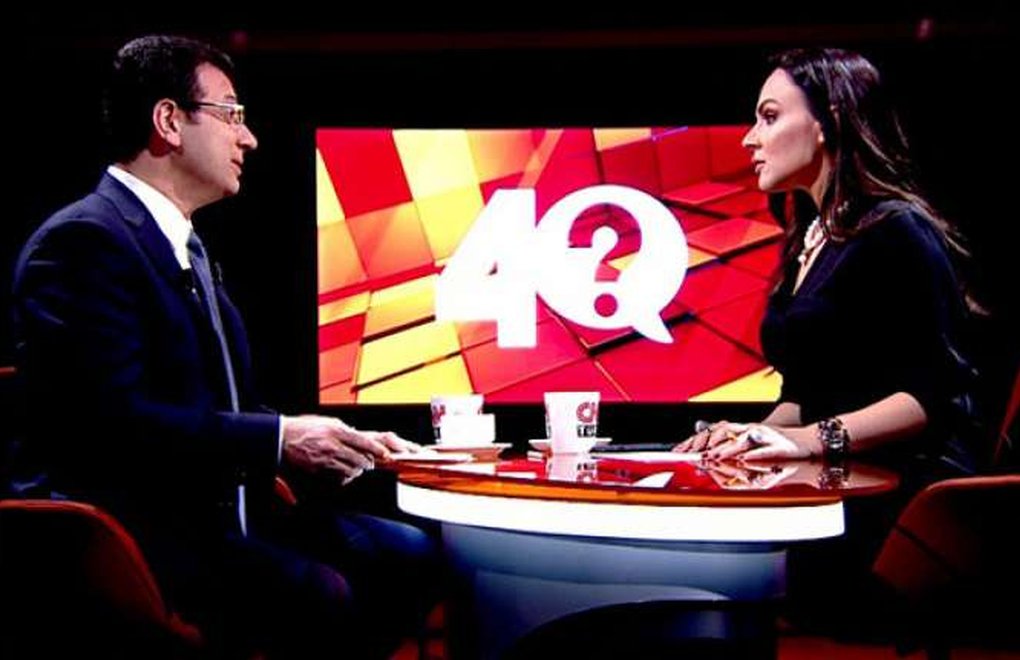
Osman Kavala’s Attorney İlkan Koyuncu: Indictment Misreads Gezi
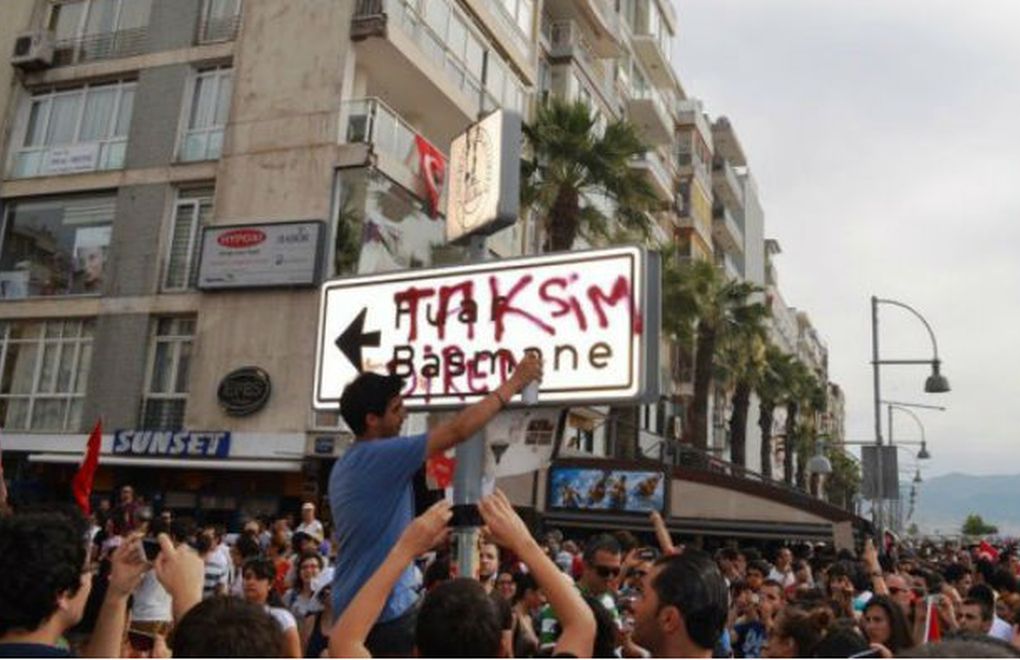
A Queue From Retail Point to Ballot Box
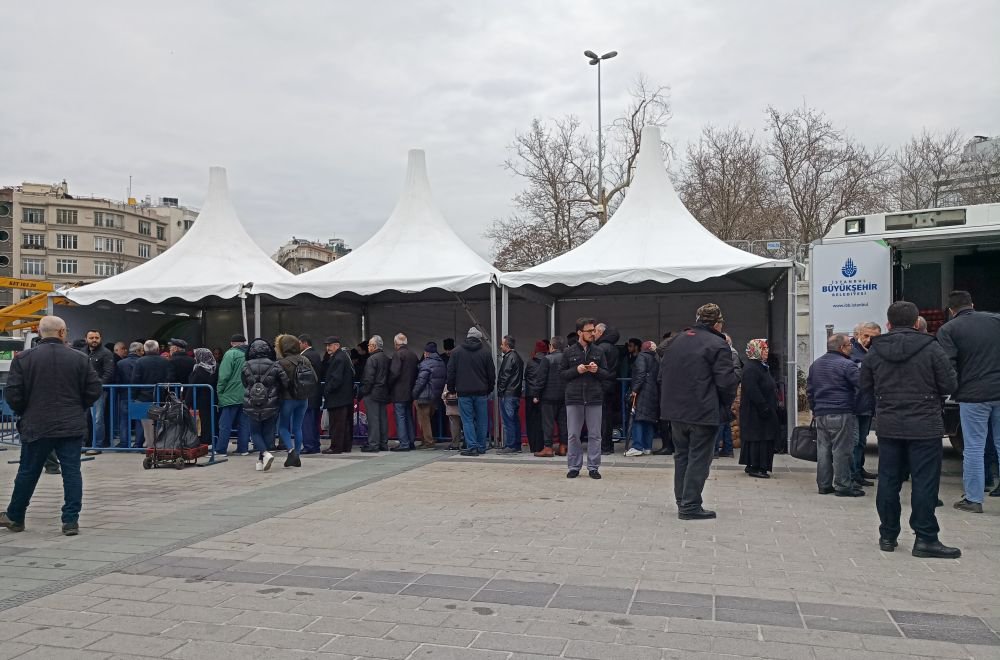
ECtHR Judgement on Cizre Basements: Constitutional Court Ruling to be Awaited

Women Who Abandon Headscarves Make Their Voices Heard With #10yearchallenge





